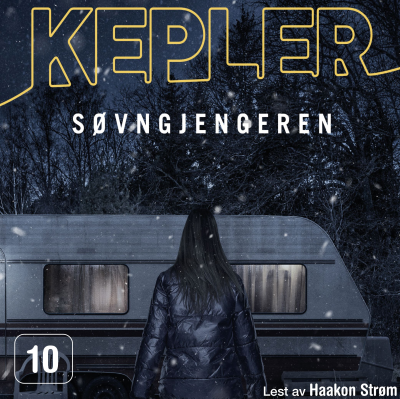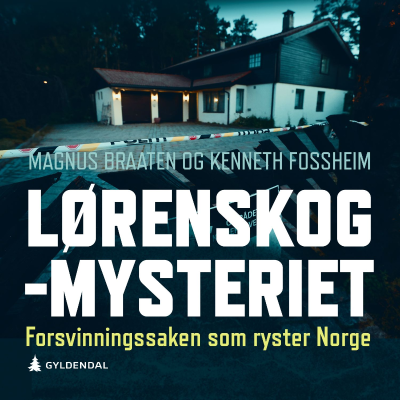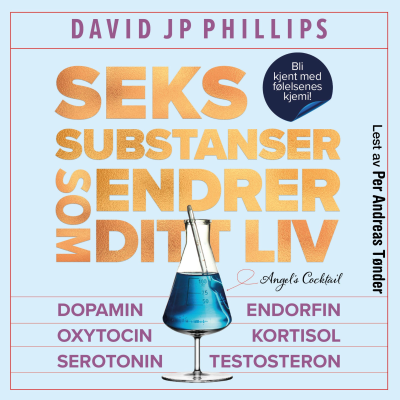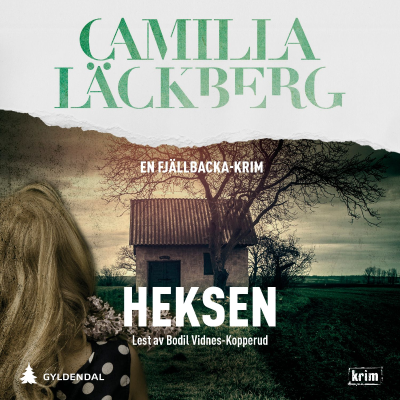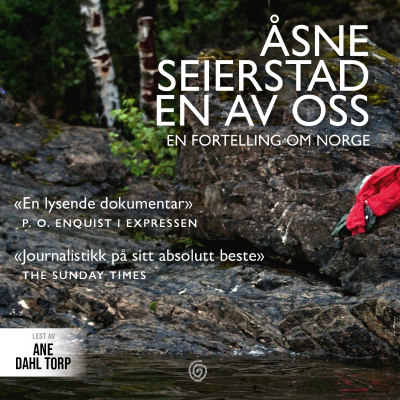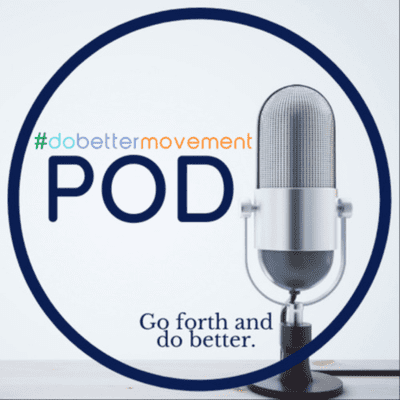
#dobetter Pod
engelsk
Teknologi og vitenskap
Prøv gratis i 60 dager
99 kr / Måned etter prøveperioden.Avslutt når som helst.
- 20 timer lydbøker i måneden
- Eksklusive podkaster
- Gratis podkaster
Les mer #dobetter Pod
A professional development initiative for behavior analysts
Alle episoder
154 EpisoderDo Better Pod Live - Sept 2025: Catching up and Articles to Read for October
In this episode, Dr. Megan and Joe catch up on some MAJOR life events for Joe and discuss what articles to read for October. Check out this FOLDER [https://app.box.com/s/uw6bj8437qq7vqj6yhwe3w02bxcx62qy] to access the articles mentioned and join us for our recording on October 10th at 12pm Est! *Don't have a link to join us? Email Megan@dobettercollective.us to receive it! AI SUMMARY FROM FATHOM: Meeting Purpose Catch up on personal updates and plan for upcoming Do Better podcast episodes. Key Takeaways * Joe has a newborn son and started a new job as a BCBA consultant in public schools * Next podcast (Oct 10) will discuss "expertise" in ABA, with pre-selected articles for listeners * Do Better Collective celebrating 5th birthday in November; planning Rejected Conference and retreat * Megan has extensive travel/speaking schedule through end of 2025 Personal Updates - Joe * New son born August 6th (premature, brief NICU stay) * Started new job as BCBA consultant in public schools * Enjoying balancing new baby and job, appreciating school schedule * Learning to adapt consulting style to different school cultures Do Better Collective Updates * 5th birthday celebration on November 15th, 2025 * Planning second Rejected Conference (speakers confirmed) * February 2026 retreat being organized * Megan's upcoming travel/speaking: October Podcast Plans * Topic: Defining "expertise" in ABA * Pre-selected articles for discussion: * Considering opening discussion to public participants BACB ACE Instructor Requirements Discussion * New rules effective July 2026: * Concerns about potential limitations on CE opportunities * Lack of clear rationale or research basis for new requirements Parenting Observations * Joe enjoying newborn phase, noticing rapid changes in older children * Discussion on children adopting new slang/trends (e.g. "six seven" meme) * Importance of maternity/paternity leave
Do Better Pod Live - August 2025, What Keeps us Up at Night?
Join Dr. Megan and Special Guest, Nicole Parks, as they discuss the topics keeping them at a night in the field of behavior analysis. Meeting Purpose To discuss current issues keeping behavior analysts "up at night" and explore potential solutions in the field of ABA. Key Takeaways * Licensure requirements for behavior analysts across states are inconsistent and often unclear, causing confusion and challenges for practitioners. * RBT turnover remains a significant issue in ABA, with no clear solutions despite ongoing discussions and attempts to improve company culture. * There's a growing divide between academic and practitioner expertise in the field, leading to debates about the definition of an "expert" in ABA. State Licensure Challenges * Inconsistent interpretation of licensure requirements across states * Lack of clear guidance from regulatory boards on specific situations (e.g., providing supervision across state lines) * Need for a comprehensive resource outlining state-by-state licensure requirements * Challenges with reciprocal licensing and the cost/time involved in obtaining multiple state licenses RBT Turnover and Retention * Ongoing issue with high turnover rates among Registered Behavior Technicians (RBTs) * Difficulty balancing professional expectations with entry-level position realities * Challenges in creating a sustainable business model while providing adequate support and growth opportunities for RBTs * Need for better screening tools to identify candidates well-suited for the unique demands of RBT positions Defining Expertise in ABA * Growing divide between academic and practitioner perspectives on expertise * Recent publications emphasizing journal articles and academic credentials as primary indicators of expertise * Practitioners feeling undervalued despite extensive real-world experience * Need for a more inclusive definition of expertise that recognizes both academic and practical contributions to the field
Do Better Pod Live - July 2025 - Interview with Jerrod Zertuche on Kind Extinction
In this episode, Dr. Megan and Joe interview Jerrod Zertuche about Kind Extinction and the upcoming webinar he is conducting on August 27th. Check it out to learn more! AI SUMMARY FROM FATHOM: Meeting Purpose Live recording of the Do Better Podcast featuring guest Jerrod Zertuche discussing kind extinction and his unique experience in behavior analysis. Key Takeaways - Kind extinction incorporates validation and co-regulation into behavioral interventions, avoiding traditional extinction bursts - Mental rehearsal and somatic awareness can help practitioners become more comfortable with empathetic, validating approaches - There's a need to shift ABA culture away from "enforcer" mentality toward more compassionate, connection-based practices - Jared will be conducting a webinar on kind extinction for Do Better Collective on August 27th [https://dobettercollective.com/course/kind-extinction-the-inner-work-of-doing-better/] Introduction to Kind Extinction - Developed by Tarbox & Tarbox (2023) to incorporate validation of emotional experiences without reinforcing problem behaviors - Allows practitioners to provide emotional support during challenging moments, rather than ignoring clients - Shown to produce gradual behavior reduction without extinction bursts in initial research Cognitive Dissonance in Shifting ABA Practices - Many practitioners experience discomfort transitioning from "enforcer" role to more empathetic approaches - Mental rehearsal and somatic awareness exercises can help build comfort with new techniques - Shift requires vulnerability and relinquishing some control, which can feel uncomfortable initially Benefits of Kind Extinction - Improves social validity - feels better for clients, families, and practitioners - Promotes faster de-escalation of challenging behaviors - Aligns with modern neuroscience on co-regulation and emotional support - Cultivates safety and connection, enhancing learning potential Challenges in ABA Culture Shift - Many practitioners conditioned to value data/procedures over empathy - Discomfort with vulnerability required for validation/empathy - Easier to fall back on traditional extinction despite limited evidence base - Need for patience and understanding during transition period Mental Rehearsal Training - Jared plans to incorporate guided meditations and mental rehearsal in upcoming webinar [https://dobettercollective.com/course/kind-extinction-the-inner-work-of-doing-better/] - Evidence shows mental practice improves skill acquisition (e.g. musicians, nurses) - Can help practitioners become more fluent in kind extinction techniques
Do Better Pod Live June 2025 - Catching Up
In this episode, Dr. Megan and Joe catch up on a few different topics. AI NOTES FROM FATHOM: Meeting Purpose Monthly recording of the Do Better podcast, discussing recent experiences and upcoming plans. Key Takeaways * Megan shared insights from recent training in China/Vietnam on emotional regulation and cultural differences * Plans for July podcast to feature Jared discussing kind extinction and visualization techniques * Agreed to compile a list of 5 key articles to read before August, including AI ethics papers * Anticipating CASP's AI guidelines release, expected in July Recent International Training Experiences * Megan conducted training on natural environment teaching in China and Vietnam * Many questions revolved around emotional regulation and psychological flexibility * Cultural differences observed in handling children's emotions (e.g., ignoring crying) * Emphasized importance of connection, relationships, and emotional regulation as foundational skills Upcoming Podcast Plans * July: Hoping to feature Jared discussing kind extinction * August: Jared to present on kind extinction and visualization techniques for skill fluency [https://dobettercollective.com/course/kind-extinction-the-inner-work-of-doing-better/] * Discussed compiling a list of 5 key articles for listeners to read before August AI in ABA * Megan developing "dance method" for critical use of AI responses [https://dobettercollective.com/course/prompting-with-aba-the-dance-method/] * Mentioned Cox & Jennings Ethics in AI article * Joe suggested "Frontiers of Innovation: Ethical Challenges of Artificial Intelligence and Startups" article * Anticipating CASP's AI guidelines release, expected in July
Do Better Pod Live May 2025 - Spring Cleaning
In this episode, Dr. Megan and Joe let the wheel decide their topic and Spring Cleaning was the winner. What behavioral strategies do you use to influence your Spring Cleaning Behavior? Who is better at spring cleaning, Megan or Joe? Tune in to find out! FATHOM AI SUMMARY [https://fathom.video/invite/ftfibg] Meeting Purpose Record a live episode of the Do Better podcast discussing spring cleaning strategies. Key Takeaways - Spring cleaning can be approached in manageable steps, starting with small tasks to build momentum - Digital spring cleaning (organizing files, emails, cloud storage) is an important but often overlooked area - Setting clear rules and systems for donating/selling items can make the process smoother - Finding motivation and time for decluttering remains challenging for many people Topics Spring Cleaning Strategies - Break tasks into smaller, manageable steps to build momentum - Start with easy tasks like organizing digital files or decluttering one shelf at a time - Set clear rules for what to keep, sell, or donate (e.g. only try to sell items worth $20+) - Coordinate with partners/family members to tackle shared spaces - Use small time gaps (5-10 minutes) to make incremental progress Challenges in Decluttering - Difficulty parting with books, even if unread - Hesitation to get rid of clothes that might be worn again - Coordinating decluttering efforts with partners who have different approaches - Logistics of donating/selling large items, especially in condos/apartments Digital Organization - Cleaning out email inboxes and cloud storage - Organizing downloaded files into proper folders - Backing up important files to prevent data loss
Velg abonnementet ditt
Premium
20 timer lydbøker
Eksklusive podkaster
Gratis podkaster
Avslutt når som helst
Prøv gratis i 60 dager
Deretter 99 kr / måned
Premium Plus
100 timer lydbøker
Eksklusive podkaster
Gratis podkaster
Avslutt når som helst
Prøv gratis i 60 dager
Deretter 169 kr / måned
Prøv gratis i 60 dager. 99 kr / Måned etter prøveperioden. Avslutt når som helst.




















